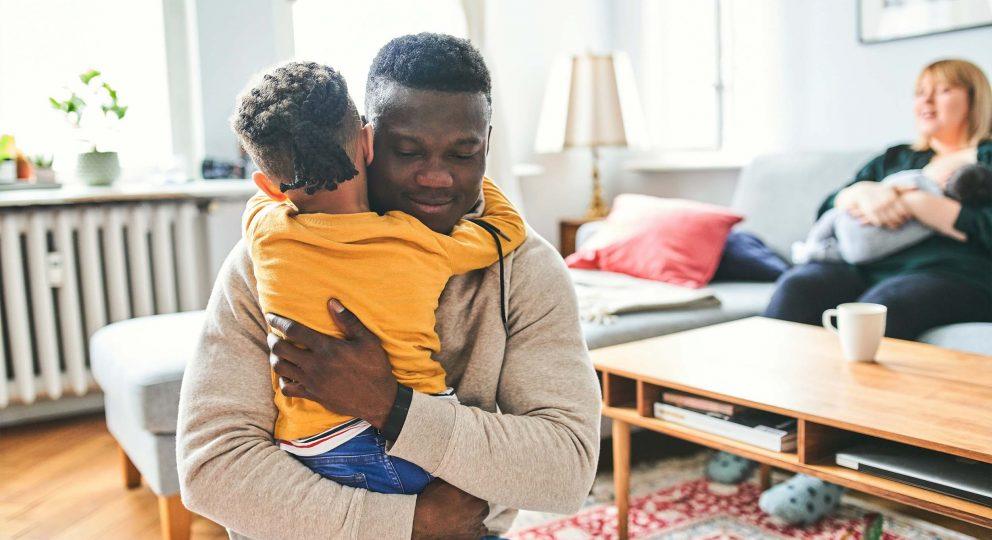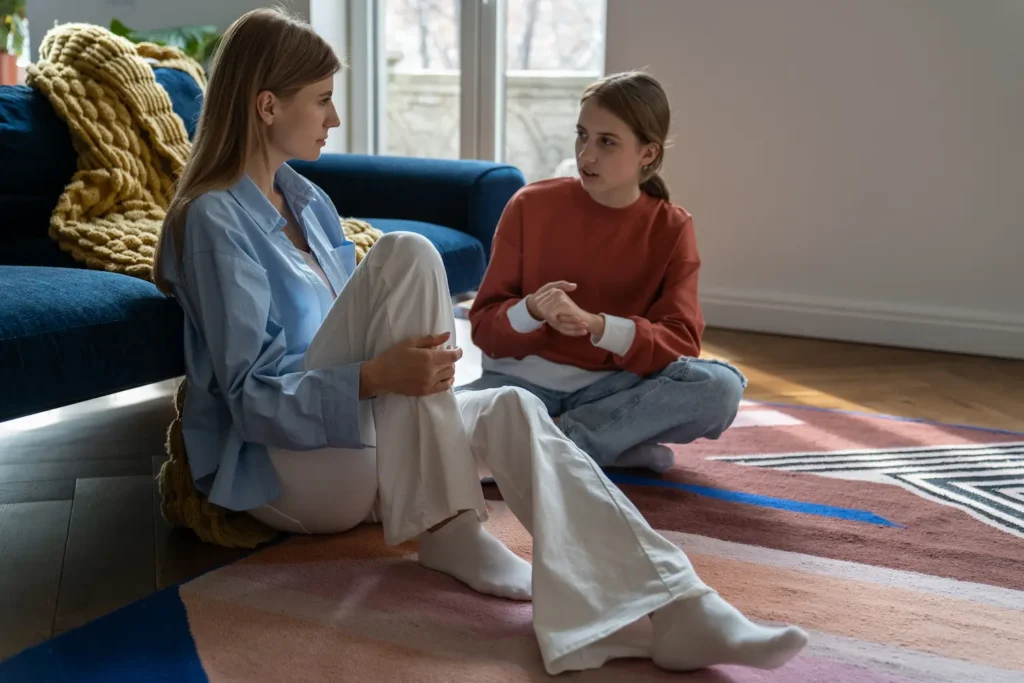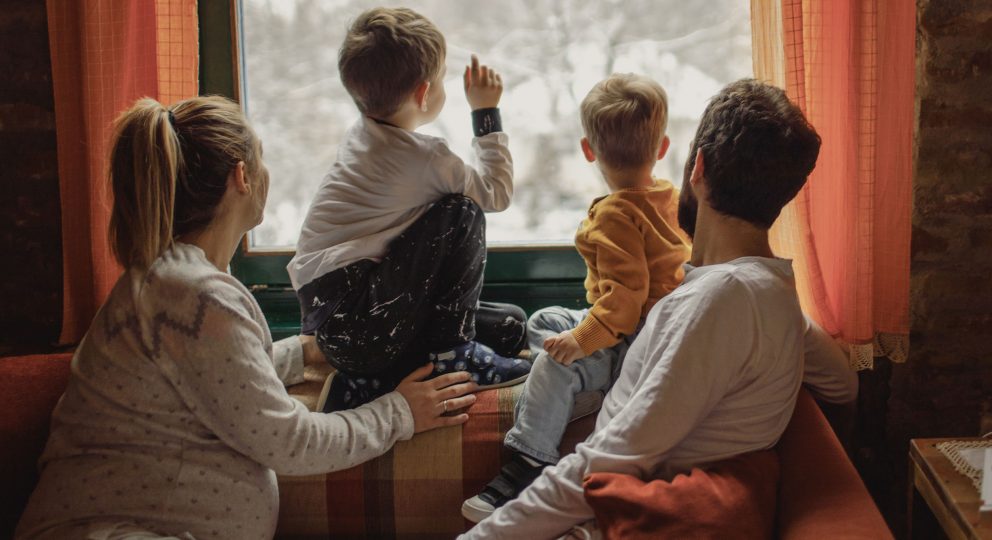It’s natural to want to protect children from challenging emotions. Parents and caregivers often do their best to diffuse uncomfortable moods or offer distractions. While this can provide short-term relief that is helpful in moderation, it needs to be balanced by sitting with those feelings and taking time to explore them. Remember, emotions occur for a reason, and learning to feel all of them fully is essential to processing life experiences. With principles drawn from mindfulness and Acceptance and Commitment Therapy, these six practices can help children manage difficult emotions and form healthy relationships with their feelings.
Raise Awareness and Validate Feelings
Feelings can easily become overwhelming, so it’s important that kids have the tools to unpack what they are experiencing. Emotional awareness is an especially important skill because it allows children to identify what they feel and break multilayered emotions into more manageable pieces. For instance, it will be easier for a child to explore what’s making them mad if they know that anger is a “secondary emotion” caused by other feelings (download the “Anger Iceberg” handout). Help your child develop emotional awareness by reflecting back whatever you notice them feeling. You might begin by saying, “Your muscles look really tight and I can see that you are disappointed.” Over time this will help them to label their emotions on their own.
Children often have emotions that seem irrational to adults, but that doesn’t make them any less powerful. Instead of dismissing these feelings, it’s more constructive to offer validation by encouraging kids to experience the feelings along with the thoughts and physical sensations that accompany them. Even when children are upset by necessary limits, you can acknowledge the legitimacy of their feelings. For example, you can say, “I can see how frustrated you are, but we still need to use kind words,” or “I know you are angry that playtime is over, but we still need to finish cleaning.”
Recognize that feelings are there to help us
Most people welcome happiness, calm, and contentment into their lives more readily than sadness, anger, or fear. Try to remember that each feeling has an equally important purpose. For instance, fear signals that we need to be wary while grief confirms the value of relationships. Feelings are a lot like road signs conveying important information for the journey through life. On any journey, you hope to see signs confirming you are on course. However, ignoring evidence that you are lost will only put you farther off track. Ultimately, your feelings are there to guide you, so it’s important to avoid placing value judgments on them. This can be challenging when children show emotions indicating discontentment, but asking children to suppress their feelings won’t resolve them. Teaching ways to express emotions appropriately will be far more helpful. Help your kids identify their emotions with this handout.
Get comfortable with discomfort
Feelings can be painful, but trying to avoid them only makes them more powerful. Working through difficult emotions when they arise increases your tolerance for uncomfortable feelings and prepares you for the challenges ahead. Spending time with the full range of emotions allows children to form thoughtful and kind attitudes toward their feelings. It also builds resilience and helps them experience emotions across the spectrum more fully. New habits take persistence, but learning to accept tough feelings rather than resist them is essential for children to form sturdy emotional foundations.
With scary and challenging topics consistently in the news, parents and caregivers need ways to explain current events that are developmentally appropriate for kids but honest enough to maintain their trust. This can be a delicate balance. Being proactive about these difficult conversations will prevent kids from seeking out information elsewhere and allow you to field their questions. Remember to check in with your child about their feelings and model healthy emotional expression.
Play
For children, the importance of play cannot be understated. Play is fundamental to learning, cognitive growth, and social development. It’s the primary way kids process their surroundings and communicate their feelings. Making playtime a regular part of your schedule will give you time to connect with your child and also provide an outlet for them to act out their emotions. They may not be able to describe exactly what they are going through, but play is a natural language for children and one of the best ways to make themselves heard.
Practice Mindfulness
Mindfulness is a technique for centering one’s focus on the present moment and passively observing the thoughts and feelings that arise. It is often recommended to relieve anxiety and stress. The world constantly pulls our attention in all directions. Mindfulness cultivates peace in the here and now and teaches acceptance without judgment. A regular mindfulness practice for the whole family can go a long way. For kids especially, the ability to observe feelings from a neutral perspective makes it easier to investigate them without getting overwhelmed.
I designed my book “Be Mindful of Monsters” to introduce kids to the concept of mindfulness. The story follows a gender-neutral nine-year-old named Ezzy, whose feelings of anger, sadness, and worry grow into monsters. The book explores the challenges and benefits of accepting those uncomfortable emotions. Ideal for reading at home, in therapy, or for Social Emotional Learning at school, the book pairs with a “Mindful Monsters Therapeutic Workbook” that brings the characters and lessons of “Be Mindful of Monsters” to life across more than 100 pages of interventions. Visit BumbleBLS.com/Books for free worksheets. Also, you can download these meditation tips.
Get Support When Needed
Treating mental and emotional issues early is the best way to prevent them from escalating. If you think your child might benefit from specialized care, don’t hesitate to consult with a therapist.
Get-Hopscotch.com is the home of a new online service that connects families with qualified child therapists. It also provides mental health professionals with a range of valuable resources, including practice management services, a free telehealth platform, and a library of interactive therapy exercises.







